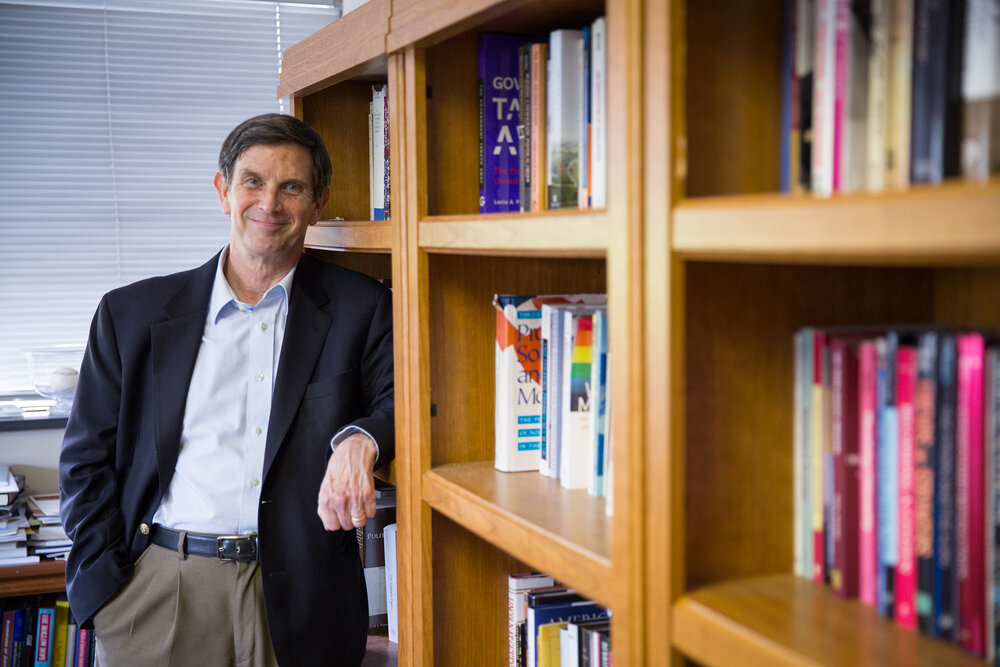Trump and supporters are greatest threat to American democracy: professor

Rogers M. Smith, a professor of political science at the University of Pennsylvania, tells the Tehran Times that “Trump is the greatest threat to American democracy since the South sought either to establish slavery permanently or to secede in the mid-19th century.”
Joe Biden’s foreign policy, especially his administration’s tensions with Russia, China and Iran have also raised questions about if Biden is following his predecessor.
Chomsky, a renowned philosopher and outspoken critic of American foreign policy, in a recent interview with Democracy in Exile, talked about Iran and China as "alleged threats" to the United States.
Chomsky believes that the main threats that the U.S. faces are “destroying the environment that can sustain human life; the growing threat of nuclear war; the threats of uncontrolled pandemics. The United States is not taking a useful position on these.”
Other critics say that the United States is in a more perilous state of disunion. It feels as if the only thing that unites the nation is mutual hatred. America seems to be engaged in an endless war with itself.
So instead of addressing more important domestic woes that can threaten U.S. democracy and integrity, it seems that the American politicians from both major parties prefer to resort to projection.
Asked about to what extent the threats raised by partisan politicians and media outlets in America are real, Professor Smith tells the Tehran Times that “although the U.S. certainly does have severe domestic problems it urgently needs to address, it is wrong to think that China, and to a lesser degree Iran, pose no threat to its interests.”
The professor adds, “China is presenting its undemocratic model of government as the one that other nations should emulate in the 21st century.”
The U.S. officials have always accused China of repressing political dissidents and religious minorities as well as endeavoring to make nations around the world economically dependent on it.
Professor Smith believes the U.S. has legitimate interests in opposing the policies of these countries.
Returning to internal challenges that may undercut U.S. democracy, especially by Republicans and Trump’s efforts to cast a doubt on integrity of U.S. democracy, Smith argues that “they are the greatest threat to American democracy since the South sought either to establish slavery permanently or to secede in the mid-19th century.”
Though many political observers regard Trump and his supporters as a minority faction who are firmly repudiated by a majority of the American people, many Republicans are seeking to take over American electoral processes.
“They want to declare themselves the winners even as they continue to lose the popular vote nationally and in many states.” Professor Smith emphasizes.
“This is the very definition of opposition to democracy.”
While Democrats are accusing Republicans of undermining democratic principles in some states by putting limits on the voting process, Republicans blame Democrats for political and economic corruption.
Asked about how these major parties balance each other, the American academic says, “The traditional defense of the two-party system, which has no basis in the American Constitution, is that it promotes stability in a huge, diverse, often divided nation.”
Today many Americans believe that antiquated and outdated constitutional institutions like the Electoral College can undermine the voices of ordinary people.
In the 2016 presidential election, Democratic candidate Hillary Clinton garnered more national votes; however, she lost to Trump due to the Electoral College.
“Clearly, today it is not promoting stability. The United States would be wise to change its electoral institutions to give more opportunities to third parties,” Smith notes. “But one thing that the two parties still agree on is that they don’t want to do that, as it endangers their oligopoly of power. It’s still better than one-party rule, however.”
The U.S. as a liberal democracy suffers a big gap between the rich-class and ordinary people. Also at international level it has been backing autocratic Arab regimes because of their oil and money. Trump was outspoken when he called Saudi Arabia a milk cow.
Professor Smith confirms that both domestically and internationally the United States has often failed and continues to fail to live up to its liberal democratic principles fully. “These failures deserve criticism. It is nonetheless also true that the United States often has supported and achieved significant advances in liberal democracy, at home and abroad. No human institutions are perfect; indeed I have heard it said that nothing human is perfect, only Allah and I suspect that’s right.”
However, many critics predict that "the American polity is cracked, and might collapse". Thomas Homer-Dixon in his piece for the Globe and Mail has claimed “the U.S. is becoming increasingly ungovernable; it could descend into civil war.”
But Professor Smith rules out the U.S. would witness once again a civil war like what happened in the 1860s.
“I do not think we will have the kind of civil war we did in the 1860s, but we do face grave dangers of governmental gridlock, rising violence, scattered attempts at secession, all producing a significant decline in American peace, prosperity, and public safety.”
He concludes that “Americans have overcome grave challenges in the past, so there is no cause for despair; but it is urgent that we rise to the exceptionally serious challenges we face today.”
